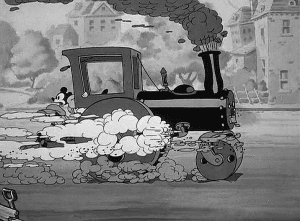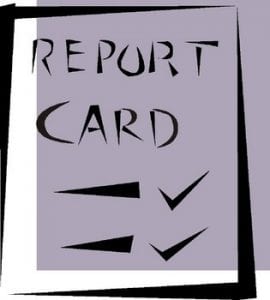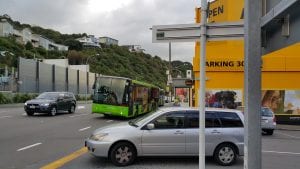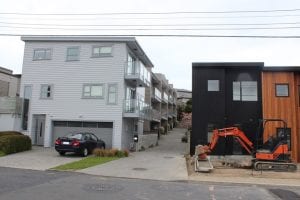It takes new thinking, time and strength of purpose to change a “Steamroller’s” direction
 Last night, I went along to the Island Bay Residents Association’s meeting to listen about the outcome of the Island Bay cycleway’s recent safety audits and NZTA reviews. The new City Planner discussed the findings and next steps for the Council. This will purportedly involve much better engagement and listening to the community. The outcome intended is to formulate a holistic plan for the streetscape (Island Bay Parade) to support all modes of transport as well as residents and business needs.
Last night, I went along to the Island Bay Residents Association’s meeting to listen about the outcome of the Island Bay cycleway’s recent safety audits and NZTA reviews. The new City Planner discussed the findings and next steps for the Council. This will purportedly involve much better engagement and listening to the community. The outcome intended is to formulate a holistic plan for the streetscape (Island Bay Parade) to support all modes of transport as well as residents and business needs.
Ron from Cycle Aware Wellington was there supporting better community engagement along with only two Mayoral candidates that came along –Nicola Young and Justin Lester and all “walking the talk” and supporting genuine collaboration.
I’m looking forward to this new way of thinking (around community engagement and collaboration) getting real traction especially in the Council’s transport and urban development areas where it has been woefully lacking. Think Medium Density Housing, Hutt Rd Cycleway and Jack Ilott Green in recent times.
However the community should not get complacent. There remains within the Council some long standing individuals that do not agree with this approach and seem unwilling to adapt their approach and ideology. We need to see real evidence of a real change in culture across both Councillors and Council staff. It will be interesting to hear the comments expressed by the Chair, Mayor and Councillors at the next Transport and Urban Development Committee meeting on 30 June 2016.
WCC is a ‘steamroller’ so change will require new thinking, take time and we will need to maintain the pressure for the required change in direction.


 I read with interest yesterday (19th May) the Press release from WCC on the outcome of yesterday’s Transport and Urban Development Committee meeting regarding proposals for upgrading the Hutt Rd cycleway and associated road changes.
I read with interest yesterday (19th May) the Press release from WCC on the outcome of yesterday’s Transport and Urban Development Committee meeting regarding proposals for upgrading the Hutt Rd cycleway and associated road changes. this year’s Wellington City Council elections in the Onslow-Western Ward. The Ward stretches from Makara, through to Karori and ends in Broadmeadows.
this year’s Wellington City Council elections in the Onslow-Western Ward. The Ward stretches from Makara, through to Karori and ends in Broadmeadows.